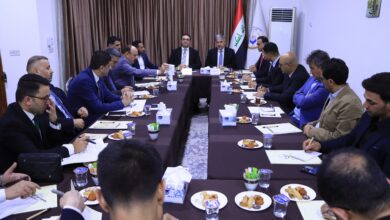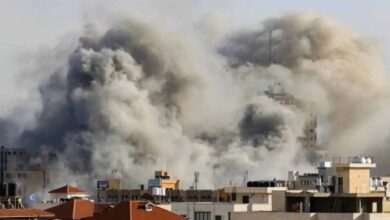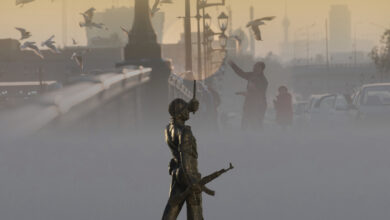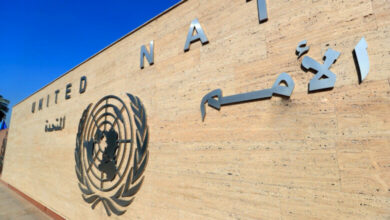Gulf Media views towards Iraq
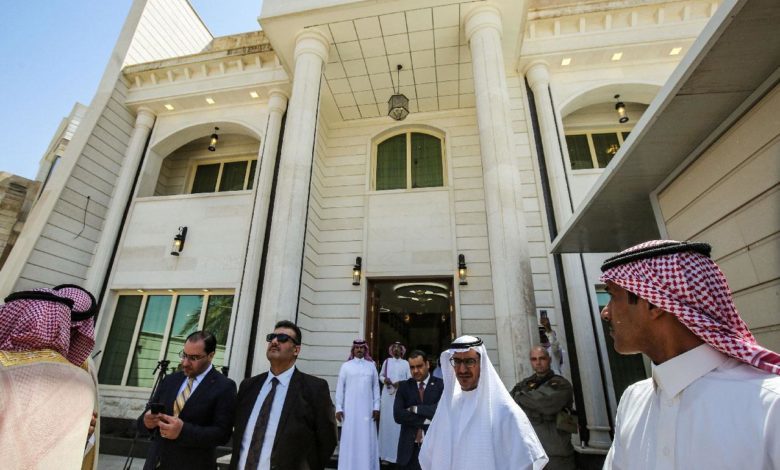
Nizar Hatem
The media of the Gulf Cooperation Council countries does not differ much from its Arab counterpart in terms of its direct link to the positions of the governments that agree and differ in their relations with the other according to the political calculations and interests of each of the GCC states, though with a relative margin of media freedom that allows for differences of opinion and among some of these countries.
Iraq, due to its geopolitical position, is of exceptional importance to the countries of the Gulf Cooperation Council because of the repercussions – negative and positive – of the events taking place in the Iraqi arena on the whole countries of the region.
During the Iraq-Iran war, the Gulf media made efforts to support Iraq, in line with the position of their states which decided to stand with Iraq over a period of eight years. An exception is made for the media of some Gulf countries who had a platform close to neutrality and in line with the decisions taken by the leaders of these countries to distance from the fire of that war. As soon as the war ended, the Gulf media in general turned towards silence characterized by a calm side until the crisis of the former Iraqi regime began with the State of Kuwait. That made the media of the GCC countries take a different and opposing turn towards the ruling regime in Baghdad at that time. Occupation of Kuwait led the entire Gulf media machine to a direct confrontation with the Baghdad government, accompanied by the support of most of the Arab and international media that stood against the invasion of Kuwait, which was threatening similar countries had it not been for the international military action that America led to end the occupation.
Saddam Hussein’s regime invaded Kuwait, which stood by his side in his war with Iran. This left deep wounds in the hearts of the Arab Gulf, both on the official and popular levels, which clearly emerged on the Gulf media in the accusations against the former Baghdad regime of treachery, splitting the Arab ranks and the lack of respect for a good neighborly relationship and other aggressive satirical descriptions that characterized the behavior of Saddam Hussain’s regime.
And because the changes in the positions of the Gulf governments are directly reflected in their media outlets, the Gulf media began its retrogressive steps in its attack on the Iraqi regime when the Iraqi people’s uprising against its authoritarian regime erupted after the liberation of Kuwait in 1991, taken with apprehension about the repercussions that the popular uprising may lead to on neighboring countries. Here, in that fearful timeline, the flags of the Gulf Cooperation Council States receded to stand in the gray area, contenting themselves with timid coverage of the events that took place in fourteen Iraqi governorates, and subsequently resorting to almost silence after the abortion of the uprising.
During the war that toppled Saddam Hussein’s regime in 2003, the Gulf media and the State of Kuwait in particular recorded a remarkable presence that raced with time in covering the course of the battles and the advancement of the coalition forces towards Baghdad. While Gulf countries pushed the correspondents of the press and their satellite channels – most of them non-Gulf – into the Iraqi interior to know the course of the situation and to keep up with what was happening. The Gulf media coverage of the events differed remarkably in a way indicating the different visions, perceptions and desires of the Gulf on turning the page on the Ba’ath regime in Iraq.
The tense pace of the international forces advance towards the Iraqi capital, according to the Gulf media, was giving clear indications of the decisive desire to get rid of the Iraqi regime as soon as possible, in addition to being absorbed in adopting reports that were busy trying to touch the future Iraqi scene after the international coalition forces completed their mission in toppling Saddam Hussein’s regime.
Many wishes and hopes were cited by the press and the media in the GCC countries for Iraq to turn from the grip of Saddam Hussein to the American grip completely, reflecting the desire of a number of Gulf writers and journalists to exclude the political forces that opposed the Iraqi regime for many years, because among some of those owners of Kuwaiti newspapers there were, for example, those who believed that it would be better for Saddam’s regime to remain weak than to come up with an alternative regime that would initiate the establishment of a democratic process that could cause an uncalculated backlash on neighboring countries.
And at the moment, while the leaders in the Gulf Cooperation Council countries talk about the need to support Iraq and establish common relations with it, a number of Gulf press focuses on what is negative and in a selective way to give a bleak picture of the current Iraqi scene, which opens many questions among observers about the extent of harmony between that media and the positive statements of the Gulf officials, while some observers themselves describe this disparity to the existence of relative freedoms in the media in some Gulf countries that allow the expression of personal views that do not necessarily require compatibility with the official position.
Perhaps the aforementioned relative freedom is pushing – up to the moment – some pens in the Gulf media to address the Iraqi scene with great sensitivity and exert efforts to convey gloomy pictures of the overall Iraqi situation with deliberate negligence to highlight many of the achievements that have been achieved following the overthrow of the despotic regime, such as conducting free elections, which produced the three presidencies as well as local governments, not to mention the freedoms available to express opinion, in addition to the media freedom that translates itself through a torrent of newspapers and media channels that are not subject to the authority’s censorship and without a legal deterrence that would prevent the media from carrying out its mission of pointing out mistakes and criticizing the officials in their various positions.
The lever of the Gulf media – practically – is controversially linked to the unique position of each Gulf country that has its own accounts about Iraq. Consequently, it is not possible to describe this media as unified according to a comprehensive strategy, because the accounts of interests vary between these countries like other countries in the world.
The unstable situation tinged with doubts, apprehensions and concerns that accompanied the relationship between the GCC countries and Iraq has made the Gulf media reluctant to present deep insights, perceptions and analyzes regarding this relationship, contenting itself with transmitting the news that is transmitted by news agencies or news reports that correspondents and editors provide in a passing manner that does not exceed the horizons of the political moment or an event without going to a careful and revealing vision of the nature of future relations, or readings of the fate of the Iraqi scene in light of its many transformations to which opinion-holders differ in their approach between being overwhelmed with optimism and another in the pessimistic vision.
And in the end, an observer can not refer to a uniqueness that can be accounted for by the Gulf media compared to others in most countries of the Arab world in approaching the Iraqi situation with all its overlaps, events and current transformations.
Another point that is worth pausing on to know about the media performance of the GCC countries regarding Iraq is that the differences between these countries have a direct role in determining the media compass for this or that country.
In a quick return to the recent past, and following the liberation of the city of Mosul from the claws of ISIS, the Qatari Emir Sheikh Tamim bin Hamad Al Thani hastened to describe this Iraqi achievement as a victory for the Arabs while newspapers and other Qatari media continued to cover the liberation of Iraqi land and praise the role of Iraqis in confronting terrorism. The media system in some of the GCC states has resorted to silence or timid in dealing with this great event. In many cases the Gulf media enters by drawing the differences existing between its countries in a manner similar to bickering in dealing with the outside according to the individual relations of the GCC countries with the other.
It is clearly noticeable that the Gulf state, which is conservative in the media on the Iraqi arena, is matched by the media of the rival state, which is characterized by its openness to what is positive in the developments in the Iraqi arena, without this necessarily being a real openness as it represents a kind of provocation and spite of the policy of the opponent state.
The Gulf media is directly subject, within its general framework, to the extent of the relationship that this or that country of the Cooperation Council establishes with the Iraqi side, in direct proportion to its official orientation, with exceptions calculated with some Gulf media outlets, indicating the existence of a free media space in presenting dissenting opinion, even if relatively, it does not deviate much from the official state position.

